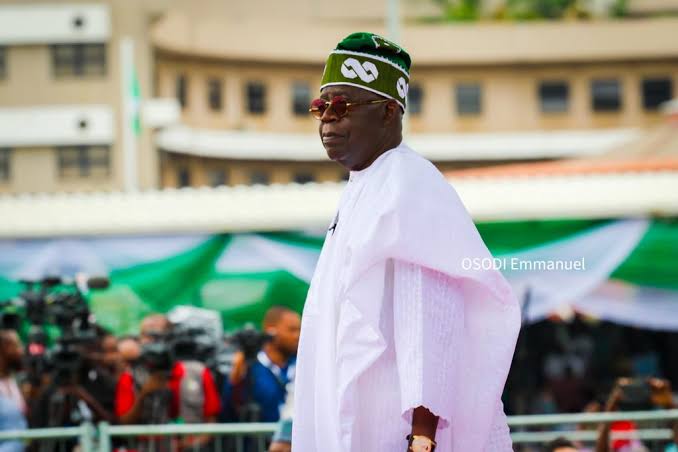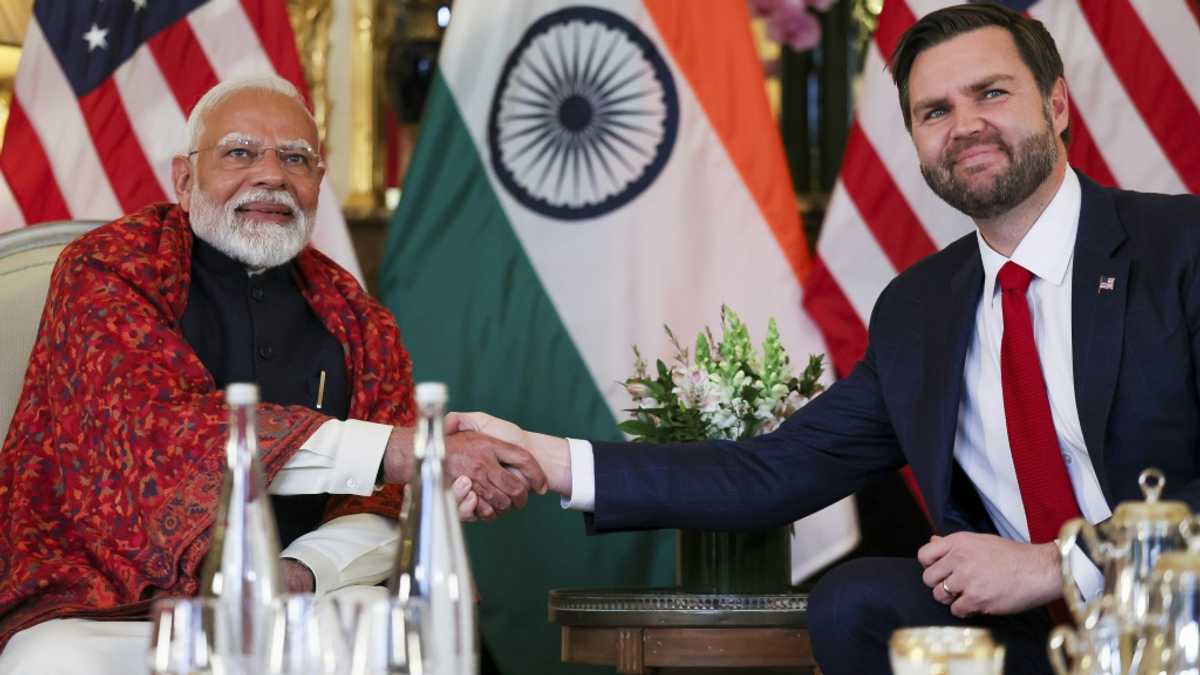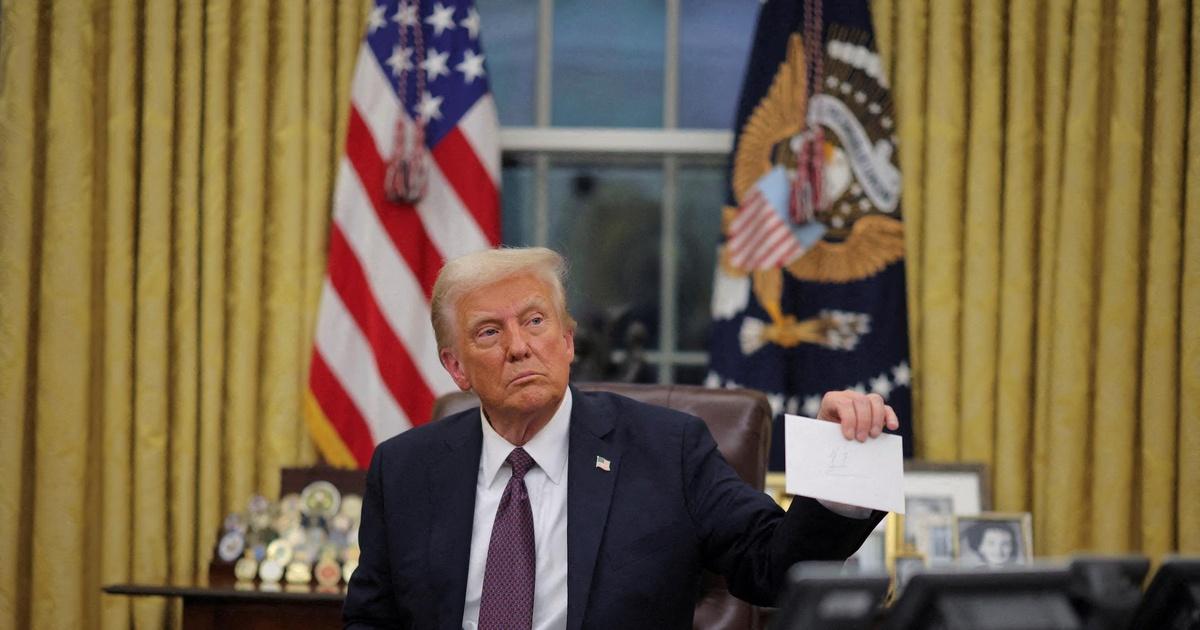Brooks and Capehart on Trump's new tariffs and spending freeze chaos
New York Times columnist David Brooks and Washington Post associate editor Jonathan Capehart join Amna Nawaz to discuss the week in politics, including the confusing policy rollouts, contentious confirmation hearings and new tariffs marking the second week of this Trump administration.
Notice: Transcripts are machine and human generated and lightly edited for accuracy. They may contain errors.
Just as a reminder, the overwhelming data shows no link between vaccines and autism. And Gabbard has previously blamed the U.S. and NATO for Russia's war in Ukraine.
But, David, when you look at this and you hear some of those concerns, do you think these senators still back these nominees, despite those concerns?
Yes, what I heard in these two cases in particular was senators, Republican senators, saying to the nominees, that crazy thing you believe, you don't really believe that, right? Would you please just make it easier for me to vote for you by telling me you don't really believe that?
And, in both cases, the nominees said, man, I'm not going to tell you I believe it, but I'm not going to tell you I don't believe it. And so they didn't make it very easy on these Republican senators.
I actually think Tulsi Gabbard's in a little harder place, because, A, there's a much broader phalanx of Republicans who are skeptical about her. Second, the Intelligence Committee is a serious committee. That's a committee that usually meets in private. So it's not usually a committee filled with histrionic behavior. It's filled with reasonable behavior.
And they really do know intelligence. And there are parts of the intelligence effort that she really is a threat to, a potential threat to. There's something called 702 of the FISA thing…
… which is a way to — we have to look at foreign terrorists and follow what they're doing and sort of head off a terrorist act. And she wants to raise the bar allowing us to use that ability.
And so that is a serious threat to people who subsequently care about intel issues. And so I think she's in a little more danger. Kennedy, it looks to me like he may go through it, unless you get somebody outside the committee, like Mitch McConnell, come in and do something.
But you think Republican senators may vote against Tulsi Gabbard? Is that what you're saying?
What do I know? But 60/40 they vote for her, which is low for — by Republican standards, that's pretty low odds for her.
Look, if — one of the three could go down, the — Kash Patel for FBI, which I don't think, given the hearings, he might not — he probably might get through.
Tulsi Gabbard, she's the one we have consistently talked about being the one on the edge, and then RFK Jr. But, look, I remember when Pete Hegseth was named as Donald Trump's pick for defense secretary and immediately Senator Joni Ernst expressed concerns, valid concerns, and expressed them clearly.
He's now secretary of defense and she voted for him. So I would love to be — I'm always just sitting here saying…
We should note three Republicans did vote against him, right…
Right.
… Collins, Murkowski, and McConnell.
Correct. And yet he is still secretary of defense.
Vice President Vance broke the tie.
Right, right, right.
I say this often on this program. I hope I'm proven wrong that no one is going to vote against any of these people. But we will see.
Before we let you go, I need to ask you about the Democrats, because they are choosing really their direction forward tomorrow. They will vote for their DNC chair.
Jonathan, you and your colleagues at MSNBC just hosted the forum for the candidates last night. What's your takeaway? Does this party have a direction?
The party has a direction.
Let me say this. I hesitated a bit. They are not unclear on what they stand for. What they are struggling with is, how do they convince the American people that they are where the American people said in the election they didn't think they were, that somehow the Republicans are now the party of the working class and care about the American people and the Democrats are the ones who are in league with billionaires and the elites?
What I took away from that — from the forum last night is that they are more concerned about misinformation, disinformation, getting the message out and how do they catch up with the incredible infrastructure that is there on the right.
And so one thing I noticed is that, as each candidate was talking about what they wanted to do or what they thought or the direction of the party, you saw heads nodding all over the stage. And so while there are eight people, maybe half of them are — actually stand a chance. Maybe half of the half stand a chance. We will see.
But the Democrats — trust me, the Democrats aren't in trouble.
I want to give David 30 seconds to respond here.
(Crosstalk)
Democrats are in big trouble.
(Laughter)
Listen, their whole world view has been blown apart. They thought of themselves as the party of the marginalized. They're now the party of the college-educated on the coast. They thought they could spend a lot of money, but it turns out that's kind of inflationary.
They didn't think a lot of Black and brown voters were going to vote for Donald Trump. Like, they should take a year off, my Democratic colleagues, take — do some serious thinking, because a lot of your mental categories have to be reinvented and reimagined.
They don't have a year.
(Crosstalk)
(Laughter)
We will come back to talk about this some more.
David Brooks, Jonathan Capehart, always great to see you. Thank you.
Thanks, Amna.












